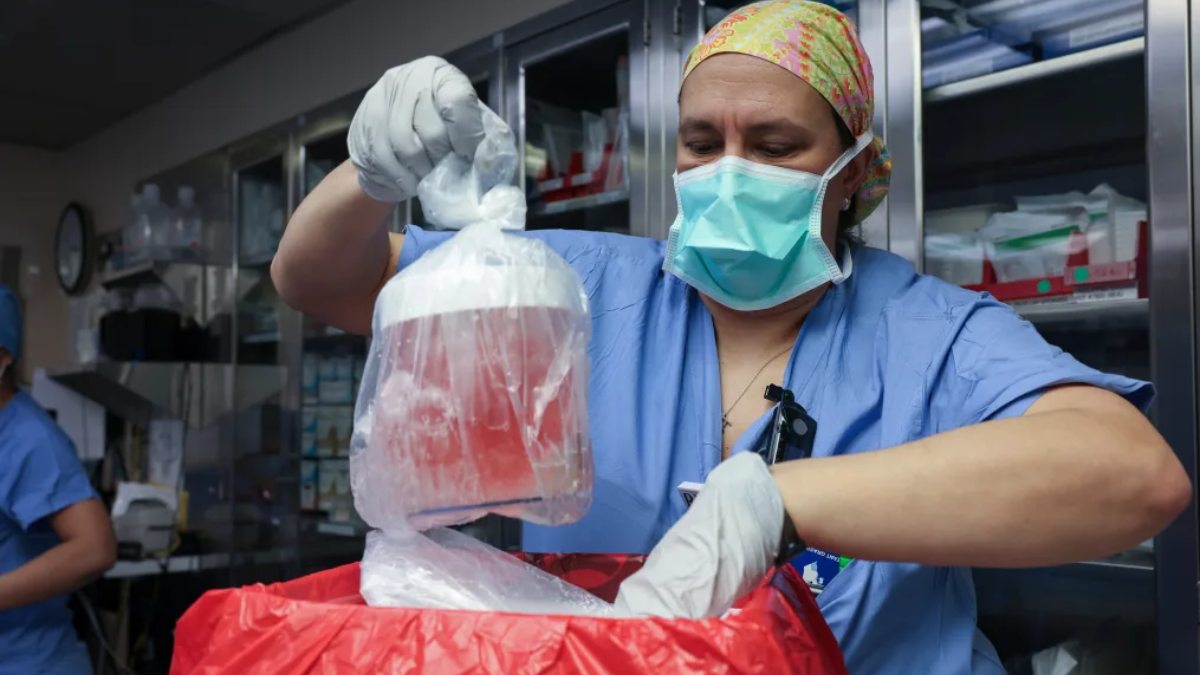Massachusetts General Hospital (MGH) announced on Thursday the successful transplantation of a genetically modified pig kidney into a living patient for the first time. The operation, which took four hours, was performed on Richard Slayman, a 62-year-old man from Weymouth, Massachusetts, suffering from end-stage kidney disease.
“This procedure marks a major milestone in the quest to provide more readily available organs to patients,” MGH stated, highlighting the chronic global issue of organ shortages. With over 1,400 patients on the waiting list for a kidney transplant at MGH alone, the success of this operation offers new hope.
Dr. Tatsuo Kawai, part of the surgical team, emphasized the potential of this approach: “Our hope is that this transplant approach will offer a lifeline to millions of patients worldwide who are suffering from kidney failure.”
The pig kidney used in the transplant was genetically edited to eliminate harmful pig genes and incorporate certain human genes, ensuring better compatibility. The patient, Slayman, is recovering well and is expected to be discharged soon. Slayman, who had previously received a human kidney transplant in 2018 that began to fail five years later, embraced this experimental procedure as a beacon of hope for many awaiting transplants.
Slayman, who is Black, underscored the significance of this medical advance for ethnic minorities, who experience high rates of kidney disease. “An abundant supply of organs resulting from this technological advance may go far to finally achieve health equity and offer the best solution to kidney failure — a well-functioning kidney — to all patients in need,” said Dr. Winfred Williams, Slayman’s nephrologist.
The successful operation marks a pivotal moment in the field of xenotransplantation, the transplantation of organs between species, and opens new doors for addressing organ shortages. Slayman is the first living person to receive a pig kidney, following experiments involving the transplantation of pig organs into brain-dead patients.

